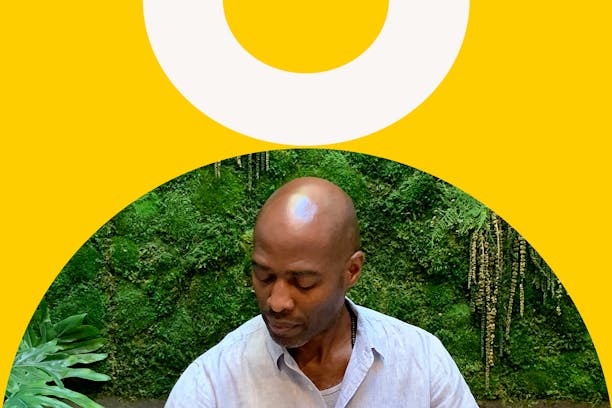What happens if the people saving the Earth give up?
Sion E. W.
Jun 14, 2021
Mindfulness helps combat a sense of futility in the face of huge, complex challenges. It creates an indispensable foundation for achieving change without burning out or becoming disheartened. So when it comes to climate change, there’s no better tool for staying on track.
Without wanting to sound too grandiose, this is what it boils down to: I’m passionate about finding ways for us to build a better relationship with our only home—Planet Earth—and with each other. I’m a campaigner. The depth of knowledge about climate change can be an occupational hazard, though. Coming to grips with the reality of the challenges we face as a species is a bit grim, to say the least. It can be overwhelming, but it’s got to be done. As campaigners we need to be able to grasp these challenges ourselves, be able to communicate them and debate solutions to them, before we can persuade anyone else to do anything. One of the issues is that some of the biggest environmental challenges that we face often sound abstract, distant in time and space. But with climate change, mounting evidence suggests the opposite. Yes, it is a global problem, with a long delay between causes and effects, but we’re already experiencing its effects. And, for a range of reasons, humanity has found it hard to respond.

Faced with the problem of climate change there can be a natural, psychological tendency to slip from denial into doom. News stories often seems to suggest that intractable problems and political failures are not only normal, but inevitable. By giving this impression, and without regular consumers realizing it, the news can chip away at a sense of hope. But these feelings don’t motivate people to act. As a species, we need to somehow find a way to occupy our fear of what could come without being overwhelmed by hopelessness. And quick. The science suggests very strongly that we have a shrinking window of opportunity to step up to these challenges. So how does mindfulness help with all this? Cultivating mindfulness through meditation has really helped me to regain a better outlook. My view of the world was warped by intimate knowledge of huge problems and by repeated suggestions that they weren’t being fixed. After a while, that left me questioning whether they could be fixed at all. One thing I’ve found helpful about meditation is that it helps you manage your mental garden. Mine was horribly overgrown with weeds of doubt and impotence. Mindfulness reminded me that, underneath all those weeds, there are some really strong trees of hope. With deep roots.
"One thing I’ve found helpful about meditation is that it helps you manage your mental garden."

When I first realized that I was feeling hopeless, I went on an intellectual quest, searching for philosophical reasons to think differently. I think that was necessary. But without a way of incorporating those fresh perspectives into the way I actually feel I don’t think it would’ve been enough. And meditation, among other things, was really helpful for doing just that. Now, in many ways, I feel more resilient and balanced than ever before. Mindfulness helps me to keep my mind and my heart in harmony. I’m in better tune with myself. It’s not to say that there isn’t a bit of discord every now and then. That’s part of life’s symphony. But I really notice the difference between those days where I have some headspace and those without.
Try these meditations to connect with nature and manage climate anxiety


Be kind to your mind
- Access the full library of 500+ meditations on everything from stress, to resilience, to compassion
- Put your mind to bed with sleep sounds, music, and wind-down exercises
- Make mindfulness a part of your daily routine with tension-releasing workouts, relaxing yoga, Focus music playlists, and more


Stay in the loop
Be the first to get updates on our latest content, special offers, and new features.
By signing up, you’re agreeing to receive marketing emails from Headspace. You can unsubscribe at any time. For more details, check out our Privacy Policy.
- © 2026 Headspace Inc.
- Terms & conditions
- Privacy policy
- Consumer Health Data
- Your privacy choices
- CA Privacy Notice











